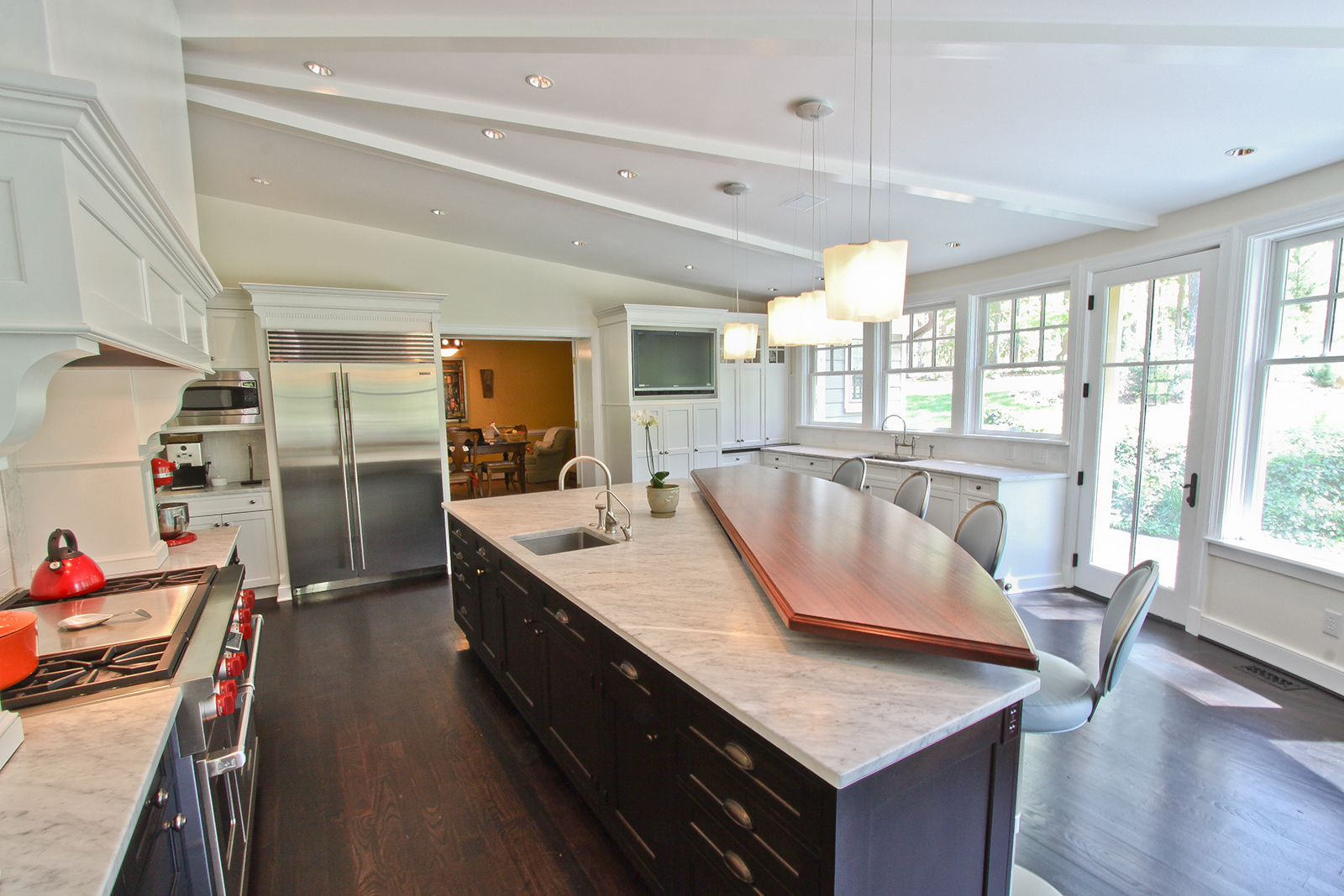The design and remodeling business is full of horror stories. Most of us have heard them, some of us have lived them, and hopefully, none of us has caused them!
Very rarely does a project start off badly and continue. If a breakdown in relationship occurs, it will typically be somewhere in the middle. What makes this so difficult is the inescapable nature of a project in process. Clearly, if a client and designer/contractor/architect/remodeler don’t get along early, the relationship will usually never take off. Once a kitchen is demolished and the owner is contractually obligated to a company, the situation is more complex.
I have been in the design and remodeling business professionally for 18 years, and in my observation ninety-nine percent of problems are due to a break down in expectations and/or communication. Expectation management and good communication is a two way street. Owners and designers both need to work hard at this. This is easier said then done. None of us (designer or homeowner) are mind readers. People are complex. Situations are complex. What is important to one individual may or may not be important to another. Mistakes are made by everyone. During my career experience, I have learned that keeping the following points in mind will make everyone’s experience more beneficial.
- Be clear about what is important to you
This is always different, as all people are different. Making value judgments is not the right response by designers. Assuming a designer places the same emphasis that you do on one tenant of a project is unfair. - Be magnanimous-we all need grace
We all make mistakes, or have oversights. Extending forgiveness back and forth between owner and designer grows trust and contributes greatly to the relationship. - If you don’t understand something ask
Designers should expect to be patient and clear with clients, remembering that they may have little or no experience with construction. Homeowners should not be intimidated by industry professionals, but take full advantage of their knowledge and experience. - Keep things in perspective
The importance people place on their homes, time and money cannot be overstated. A major remodeling project involves all three of these. However, as the saying goes, no one lives and dies over a kitchen remodel. We aren’t performing open heart surgery or negotiating global-strategic military policies - Respect other peoples time
Time is the only, truly non-renewable resource and we all have exactly the same amount on a daily, weekly and monthly basis - Don’t assume
We all know this, but how easy it is to make assumptions. Homeowners and designers need to be very careful to not take things for granted. - Address concerns promptly and professionally
Delaying to address a potential conflict, mistake or change never improves the situation. We all have a tendency to put off confrontation, or delay a conversation if we sense disagreement. This only exacerbates the problem and gives small concerns a chance to become large problems. A quick phone call often will get questions answered or determine if a meeting is required. - Don’t substitute email for phone calls, or phone calls for meetings
this can be hard to learn. Technology makes all of our lives easier, and hopefully better. Hiding behind a PC can be frustrating to the other party, and being unavailable for a face-to-face meeting can leave a negative impression. Common sense can guide all of us in this. Email is great for communicating facts. A phone call allows us to hear emotion in the other person’s voice. Meeting face to face communicates commitment and priority.
As remodelers, we are entrusted with invading someone’s personal space over the course of several weeks or months. This is trying under the best of circumstances. When contractors or designers are insensitive to this, or take for granted the expense and inconvenience of a major remodeling project, tensions can multiply. When homeowners place unrealistic demands on the people working for them, tempers can flare.
This article was not intended to have a “why can’t we all just get along” feel. When I was a young designer I had the unique advantage of learning about expectation management from a client, in a positive conversation. This particular individual ask me about the upcoming schedule, commenting that he wanted to “manage his expectations.” This was real wisdom on his part, and the phrase stuck with me. Through my own miss-steps and through some difficult circumstances, as well as observing other situations, I came to see how important this is.

